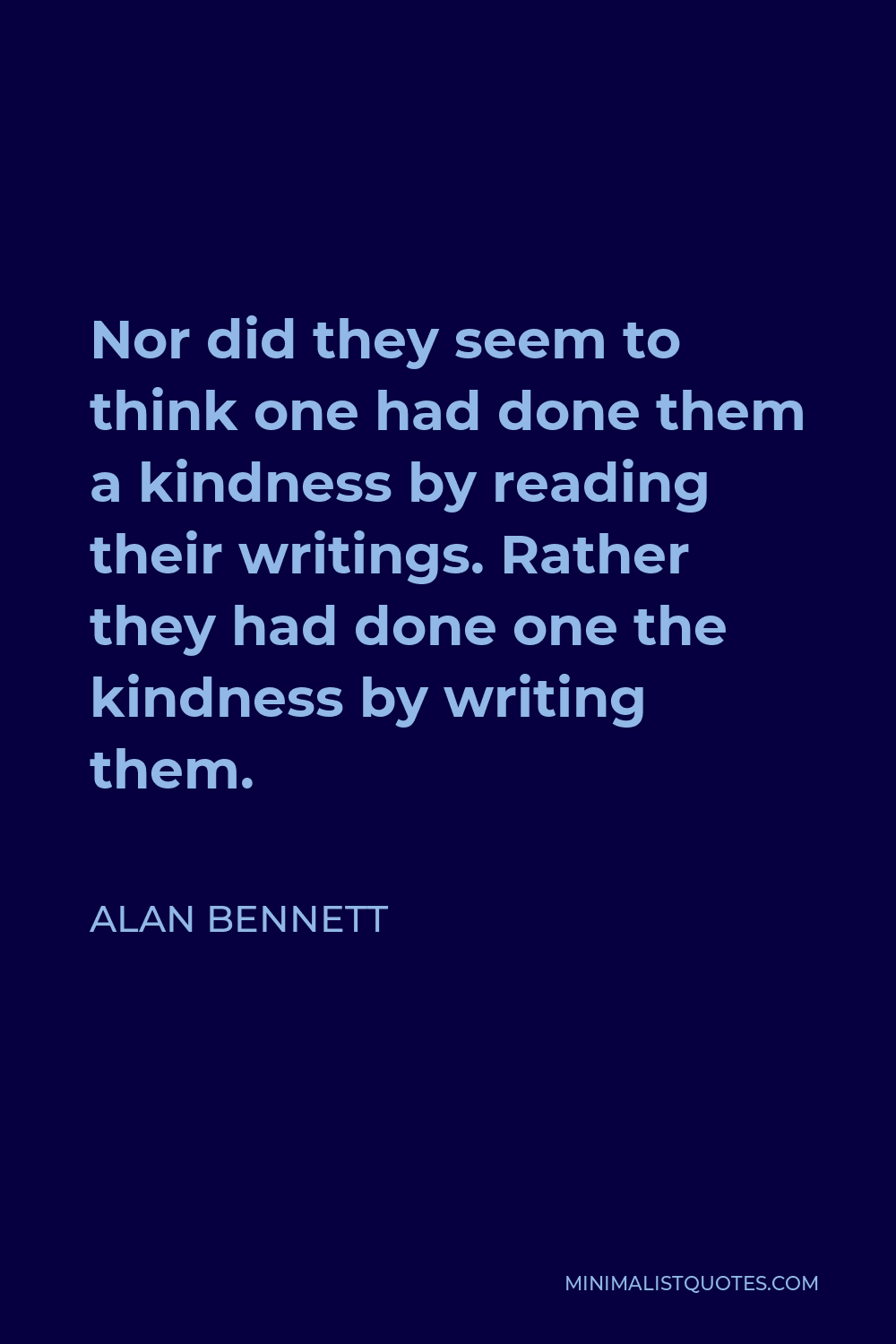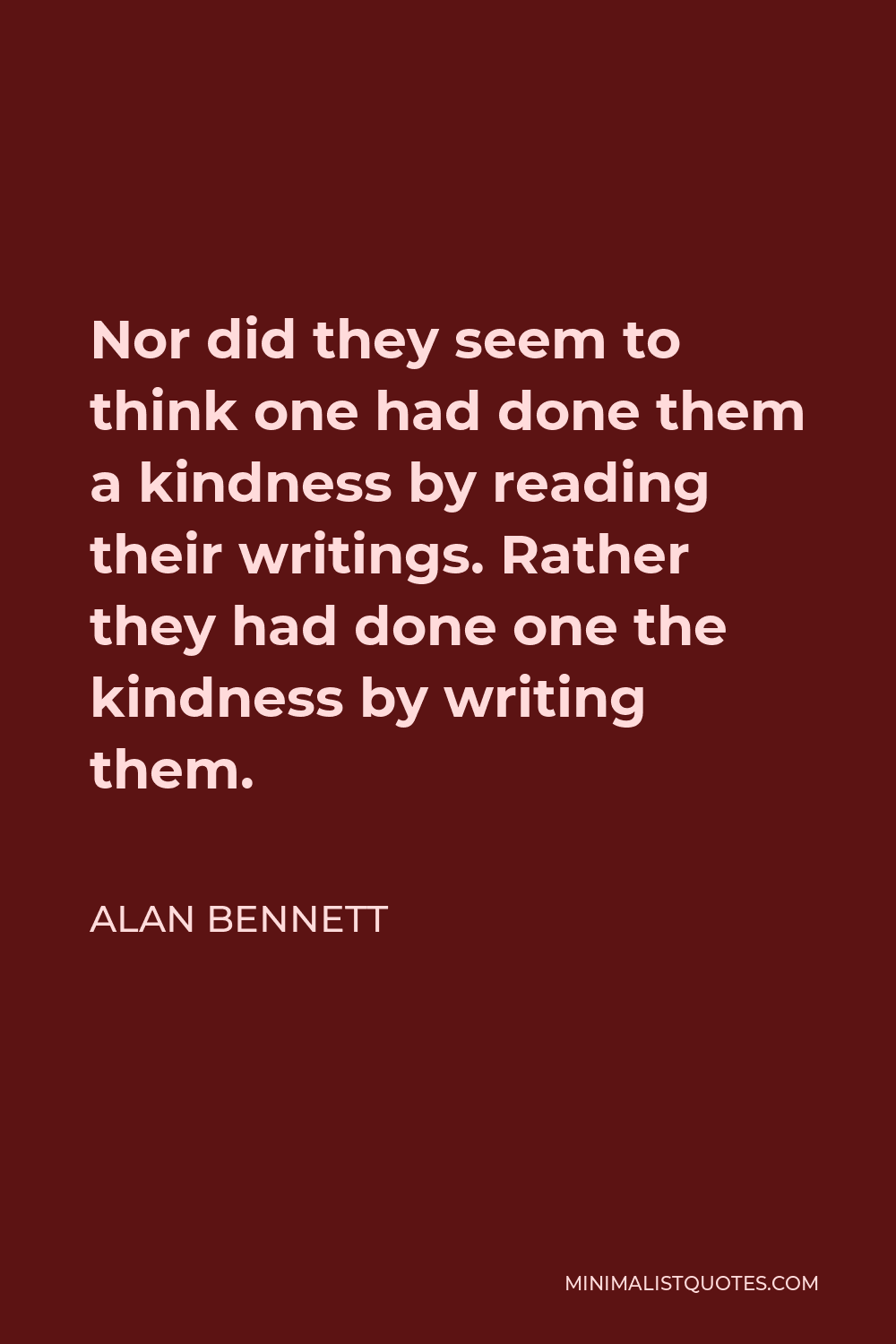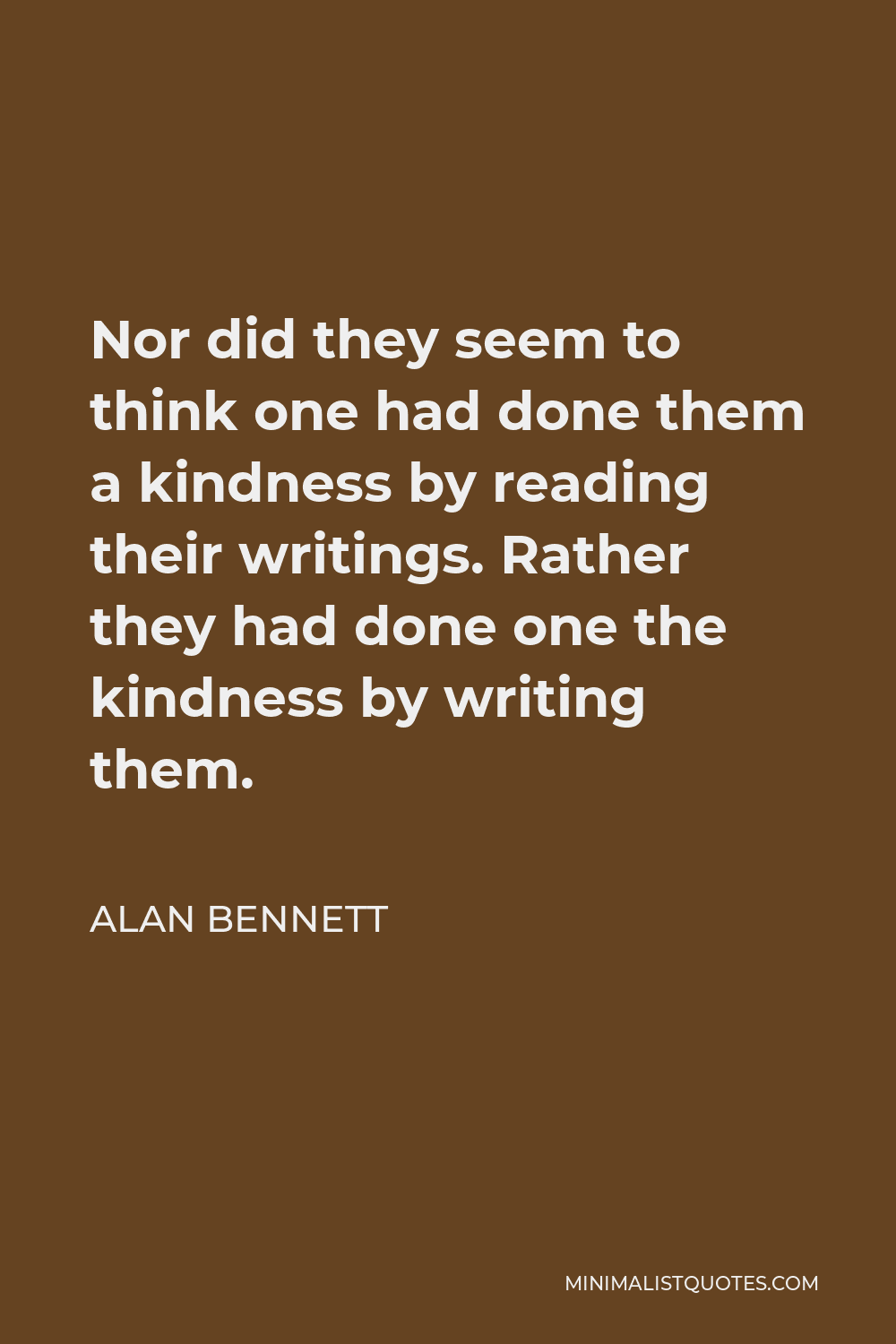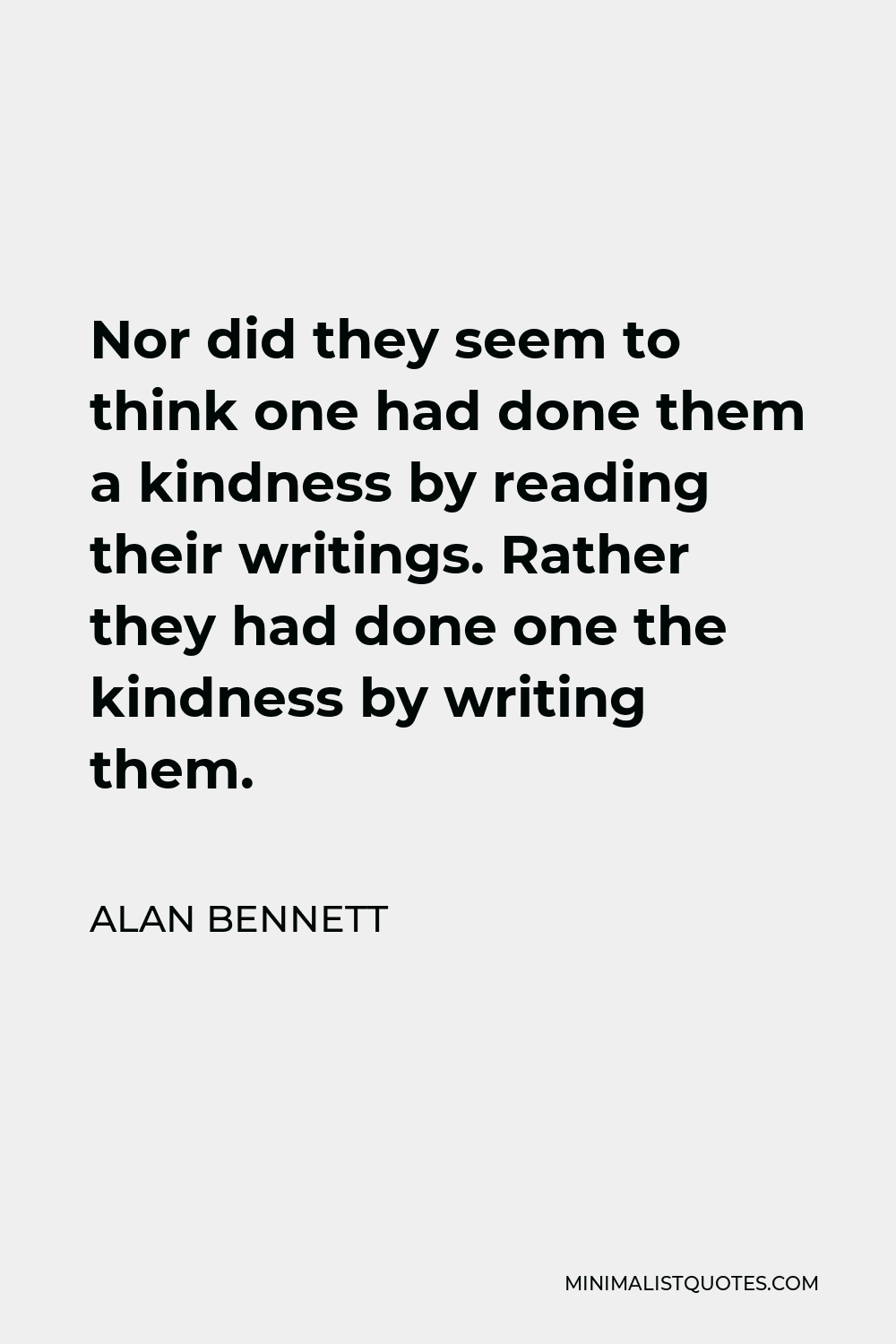I lack what the English call character, by which they mean the power to refrain.
ALAN BENNETTNor did they seem to think one had done them a kindness by reading their writings. Rather they had done one the kindness by writing them.
More Alan Bennett Quotes
-





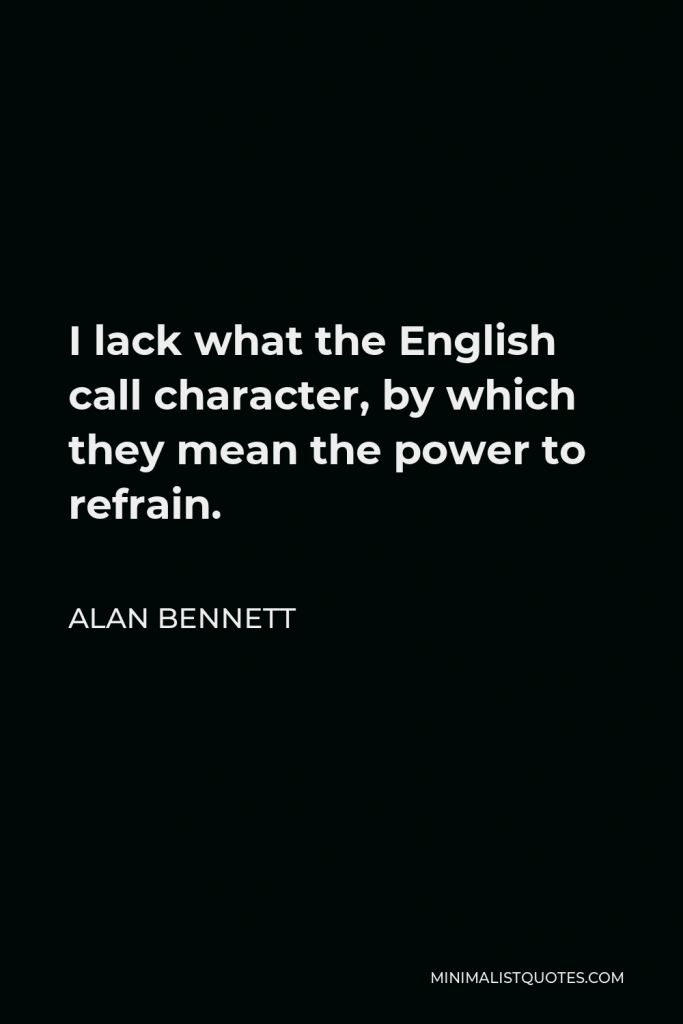

-





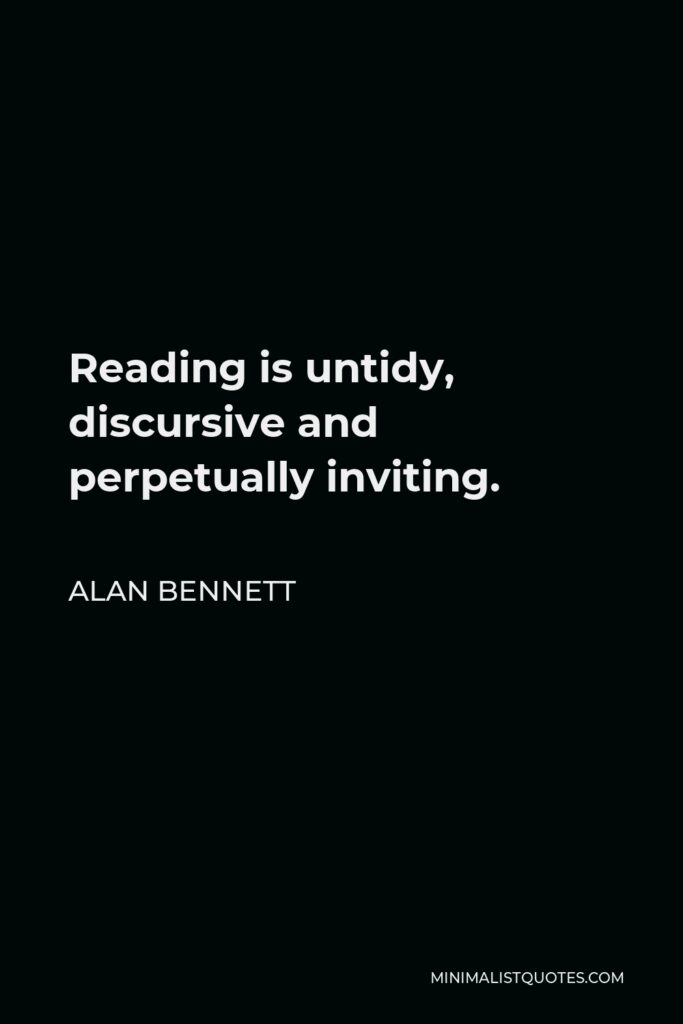

Reading is untidy, discursive and perpetually inviting.
ALAN BENNETT -





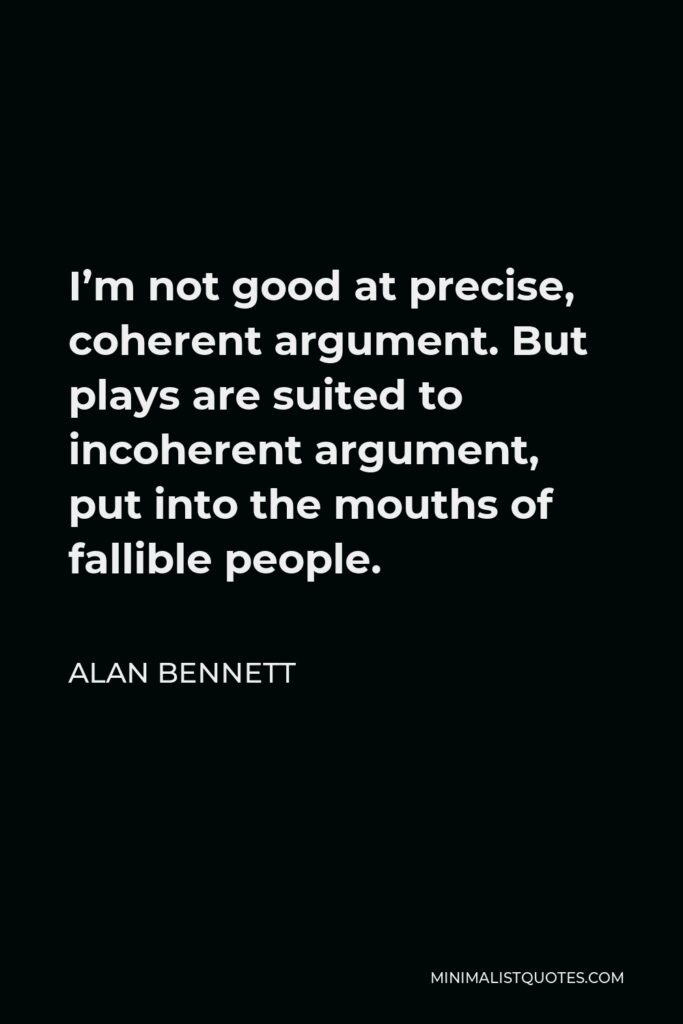

I’m not good at precise, coherent argument. But plays are suited to incoherent argument, put into the mouths of fallible people.
ALAN BENNETT -





![Alan Bennett Quote - There’s very little in the substance of [THE LADY IN THE VAN] which is not fact though some adjustments have had to be made.](https://minimalistquotes.com/wp-content/uploads/2022/08/theres-very-little-in-the-substance-of-the-lady-in-683x1024.jpg)

There’s very little in the substance of [THE LADY IN THE VAN] which is not fact though some adjustments have had to be made.
ALAN BENNETT -





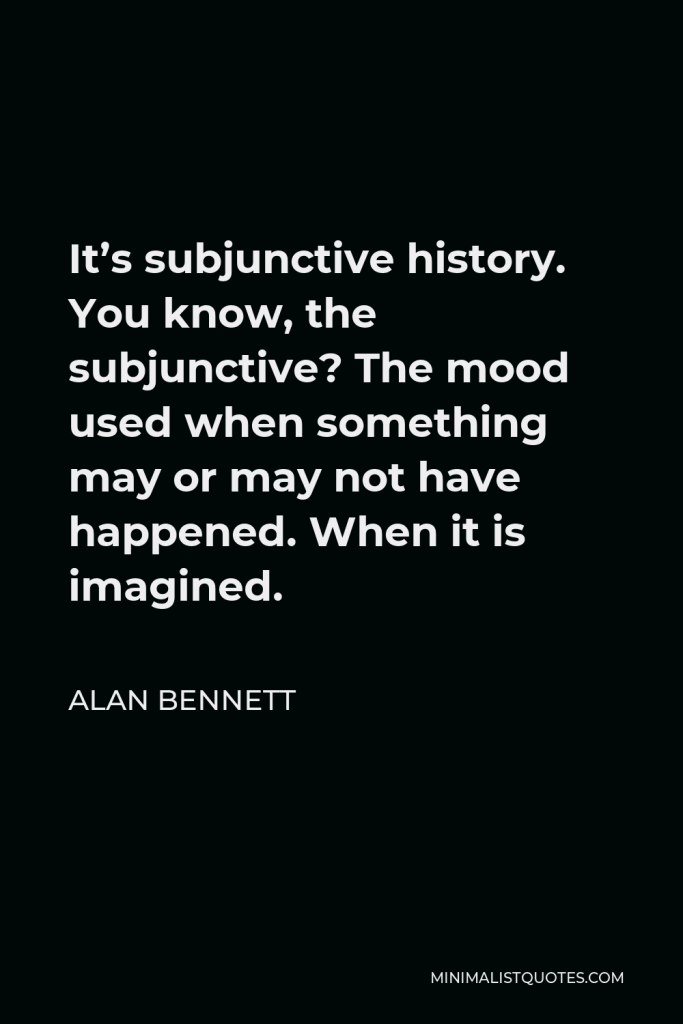

It’s subjunctive history. You know, the subjunctive? The mood used when something may or may not have happened. When it is imagined.
ALAN BENNETT -





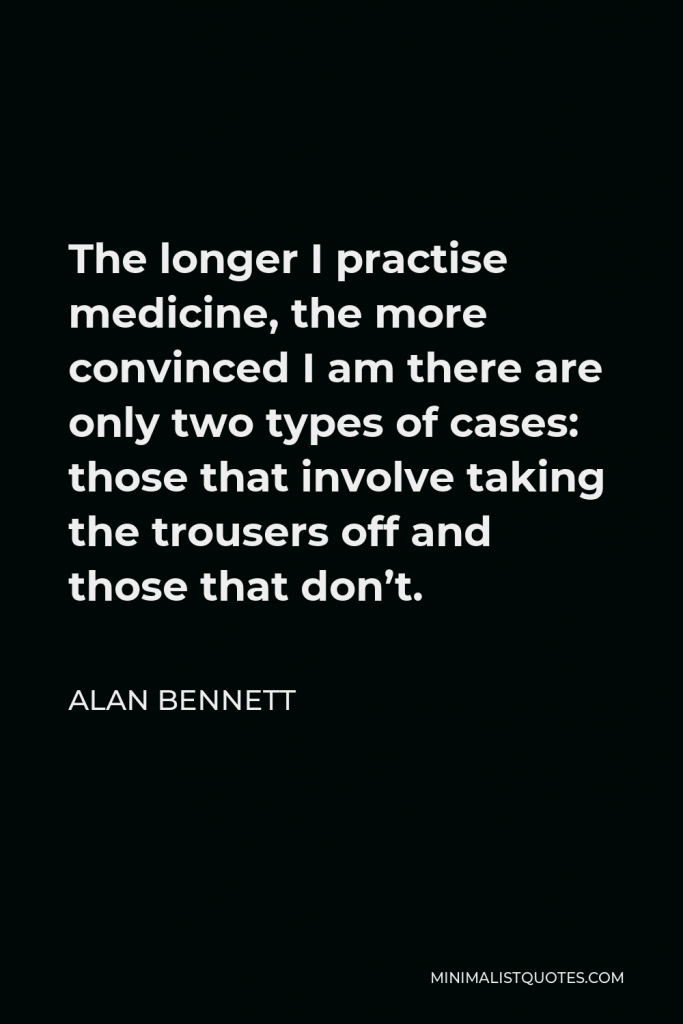

The longer I practise medicine, the more convinced I am there are only two types of cases: those that involve taking the trousers off and those that don’t.
ALAN BENNETT -







God doesn’t do notes, either. Did Jesus Christ say, “Can I be excused the Crucifixion?” No!
ALAN BENNETT -





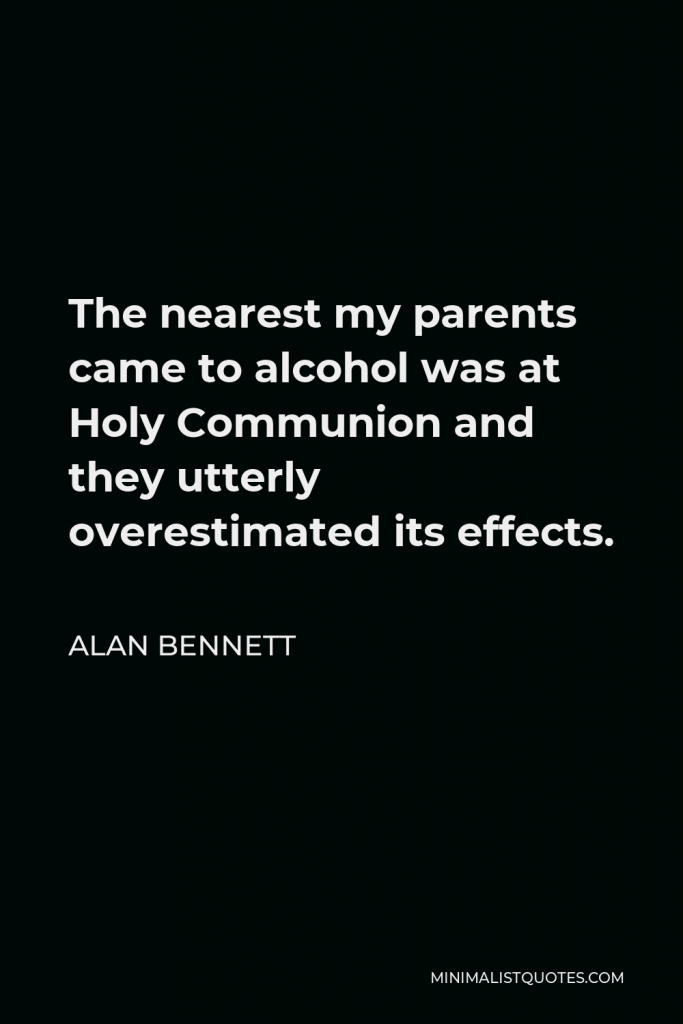

The nearest my parents came to alcohol was at Holy Communion and they utterly overestimated its effects.
ALAN BENNETT -





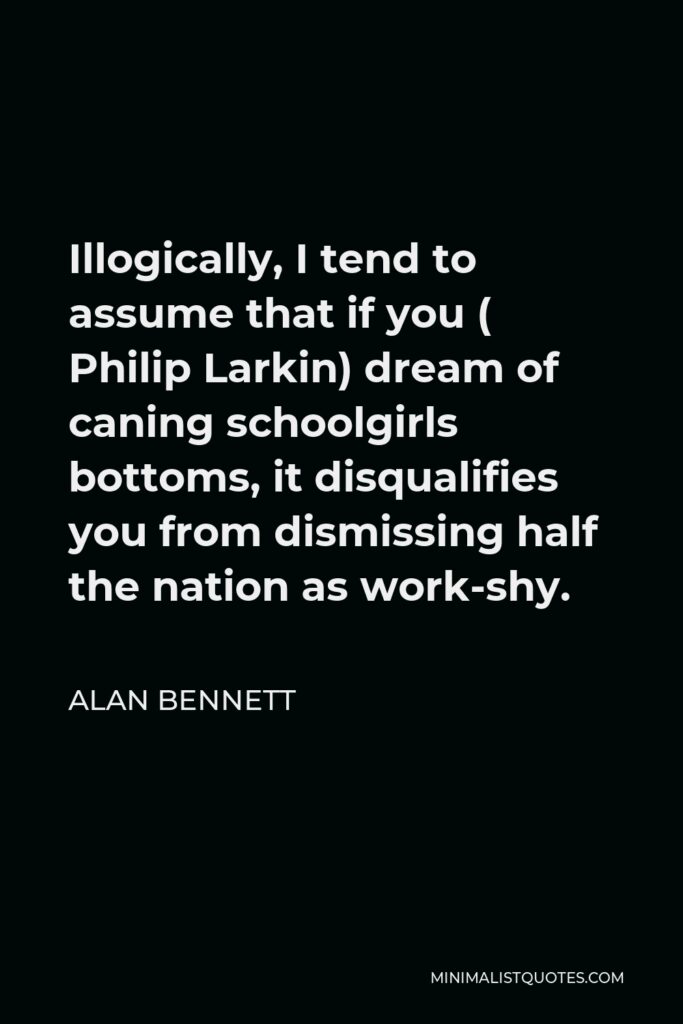

Illogically, I tend to assume that if you ( Philip Larkin) dream of caning schoolgirls bottoms, it disqualifies you from dismissing half the nation as work-shy.
ALAN BENNETT -





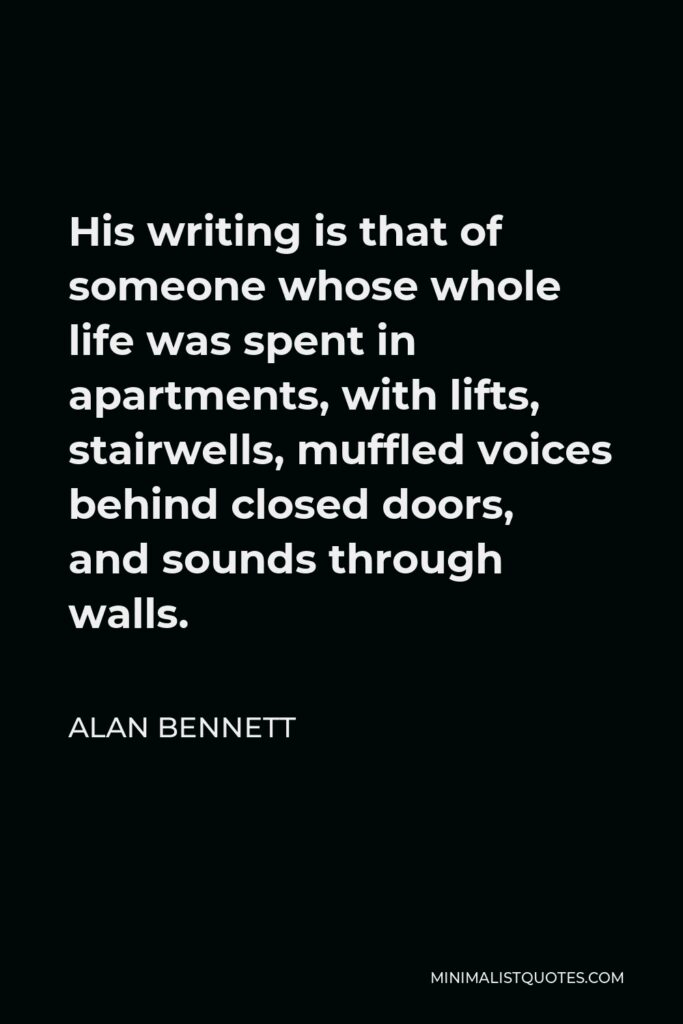

His writing is that of someone whose whole life was spent in apartments, with lifts, stairwells, muffled voices behind closed doors, and sounds through walls.
ALAN BENNETT -





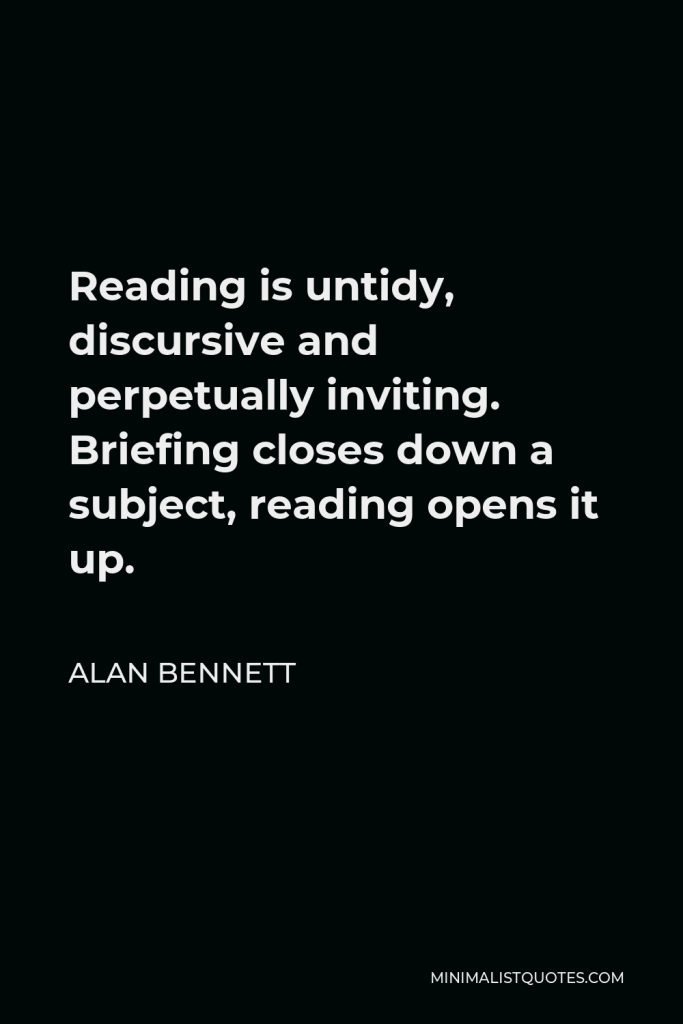

Reading is untidy, discursive and perpetually inviting. Briefing closes down a subject, reading opens it up.
ALAN BENNETT -





![Alan Bennett Quote - [talking about the Holocaust] ‘But to put something in context is a step towards saying it can be understood and that it can be explained.](https://minimalistquotes.com/wp-content/uploads/2022/08/talking-about-the-holocaust-but-to-put-something-i-683x1024.jpg)

[talking about the Holocaust] ‘But to put something in context is a step towards saying it can be understood and that it can be explained.
ALAN BENNETT -





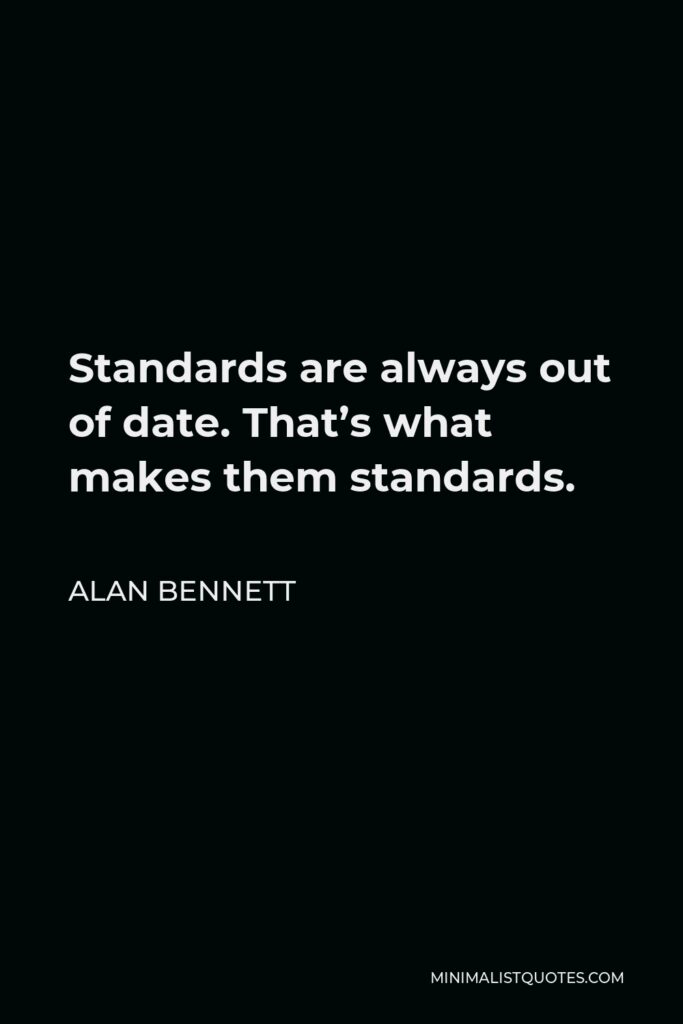

Standards are always out of date. That’s what makes them standards.
ALAN BENNETT -







Clichés can be quite fun. That’s how they got to be clichés.
ALAN BENNETT -







I can walk. It’s just that I’m so rich I don’t need to.
ALAN BENNETT -





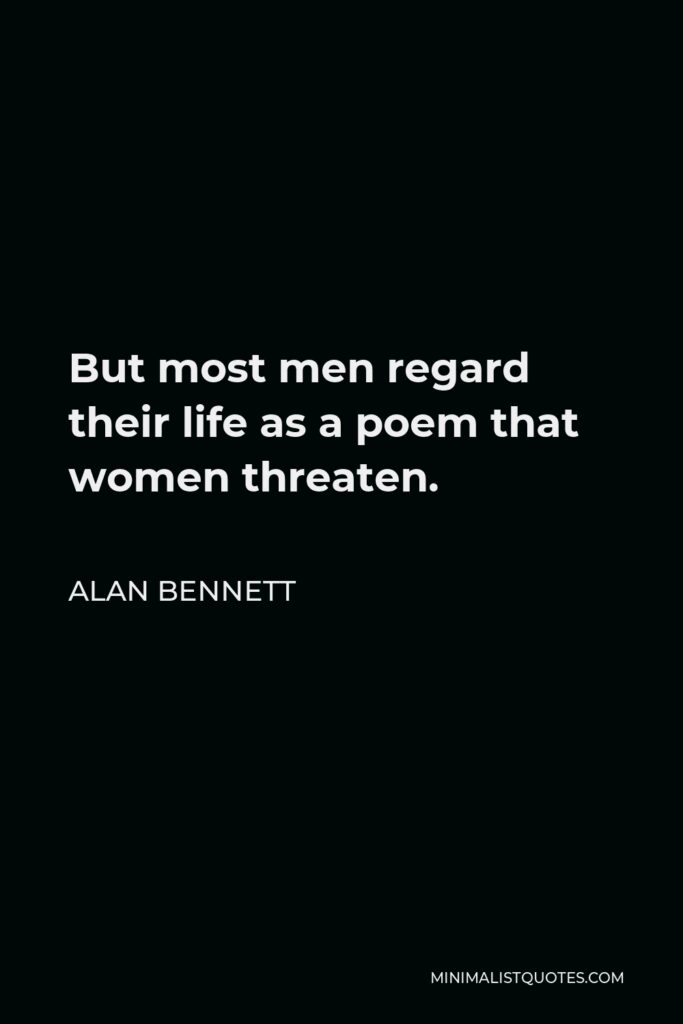

But most men regard their life as a poem that women threaten.
ALAN BENNETT


